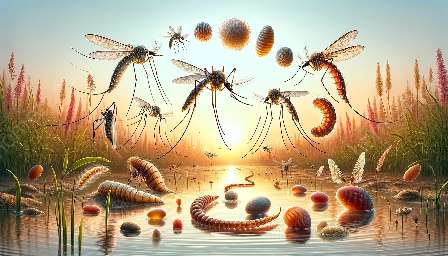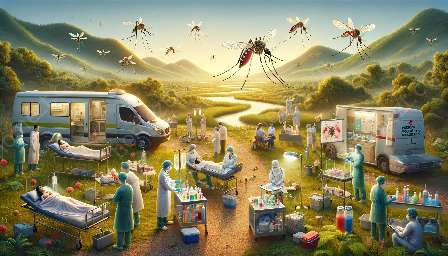When we talk about mosquito-borne diseases, we are delving into a world of dangerous illnesses that affect millions of people worldwide. These diseases are transmitted to humans through the bites of mosquitoes, making the control of these pest organisms vital in managing the spread of these illnesses. In this comprehensive guide, we will explore the various mosquito-borne diseases, how mosquitoes transmit them, and effective pest control measures to protect ourselves and our communities.
Mosquito-Borne Diseases
Mosquitoes are vectors for a wide range of diseases, including malaria, dengue fever, yellow fever, Zika virus, West Nile virus, and chikungunya, among others. These illnesses pose significant health risks to populations, especially in tropical and subtropical regions where mosquitoes thrive. Understanding the different types of diseases is crucial in developing strategies to combat and prevent their spread.
Malaria
Malaria is caused by Plasmodium parasites and is transmitted to humans through the bites of infected female Anopheles mosquitoes. The parasites multiply in the liver and then infect red blood cells, causing symptoms such as fever, chills, and flu-like illness. Severe cases can result in death if not promptly treated.
Dengue Fever
Dengue fever is caused by the dengue virus, and it is transmitted to humans through the bites of Aedes mosquitoes, primarily Aedes aegypti. Symptoms range from mild to severe, and in some cases, dengue hemorrhagic fever or dengue shock syndrome can occur, leading to potentially life-threatening complications.
Yellow Fever
Yellow fever is a viral disease transmitted by infected Aedes and Haemagogus mosquitoes. In severe cases, it can cause yellowing of the skin and eyes, liver and kidney failure, and internal bleeding. Vaccination is available to prevent yellow fever.
Zika Virus
Zika virus is primarily transmitted to humans through the bites of infected Aedes mosquitoes, particularly Aedes aegypti and Aedes albopictus. In pregnant women, Zika virus infection can cause congenital disabilities in babies, including microcephaly.
West Nile Virus
West Nile virus is spread by infected Culex mosquitoes. Most people infected with West Nile virus do not develop any symptoms. However, about 1 in 5 people who are infected develop a fever and other symptoms, and about 1 out of 150 infected people develop a serious, sometimes fatal, illness.
Chikungunya
Chikungunya is transmitted to people through the bites of infected female mosquitoes, primarily Aedes aegypti and Aedes albopictus. Symptoms include fever and joint pain, which can be severe and debilitating.
How Mosquitoes Transmit Diseases
Mosquitoes act as vectors for these diseases, transmitting the pathogens from one host to another as they feed on blood. Female mosquitoes require blood meals to produce eggs, and during the process of feeding, they can transfer infectious agents from an infected host to a healthy individual. Understanding the mechanisms of disease transmission by mosquitoes is crucial in developing control and prevention strategies.
Pest Control for Mosquito-Borne Diseases
Effective pest control plays a pivotal role in managing the spread of mosquito-borne diseases. Several strategies can be employed to control mosquito populations and reduce the risk of disease transmission.
Mosquito Habitat Modification
Eliminating or modifying mosquito breeding sites, such as standing water in containers, gutters, and other areas, can significantly reduce the mosquito population.
Insecticide Application
Strategic use of insecticides, including larvicides and adulticides, can help control mosquito populations and reduce disease transmission.
Biological Control
Introducing natural predators of mosquitoes, such as certain fish species and copepods, can help control mosquito larvae in aquatic habitats.
Community Education
Public awareness and education about the risks of mosquito-borne diseases and preventive measures, such as using mosquito nets and repellents, are essential in reducing disease transmission.
Conclusion
Mosquito-borne diseases pose significant health threats to populations around the world. Understanding the diverse range of diseases and their modes of transmission is crucial in developing effective control and prevention measures. By implementing comprehensive pest control strategies and promoting community awareness, we can minimize the impact of mosquito-borne illnesses and protect ourselves from these dangerous diseases.





























